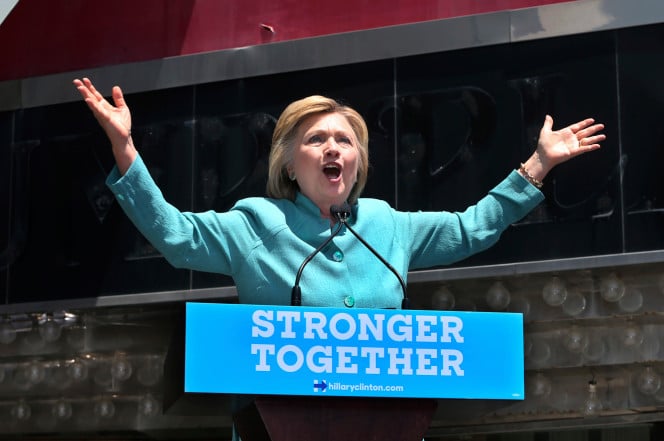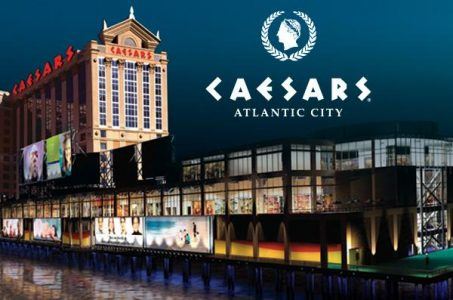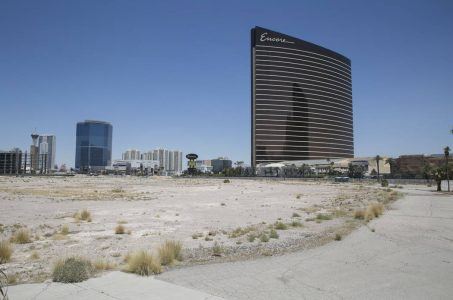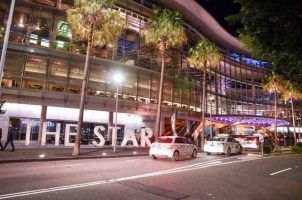Clinton Denounces Trump in Front of Bankrupt Trump Plaza in Atlantic City
Posted on: July 7, 2016, 08:25h.
Last updated on: July 7, 2016, 08:49h.
Hillary Clinton hit the boardwalk in Atlantic City on Wednesday to denounce what she called Donald Trump’s legacy of “multiple bankruptcies,” “stiffing contractors,” and “hundreds of job losses” in the resort gambling town.

The backdrop of the shuttered, bankrupt Trump Plaza served, in the eyes of the Clinton camp, as the perfect metaphor for a future US economy under a Trump presidency, as Hillary pilloried her opponent for running Atlantic City into the ground.
Trump achieved this, claimed Clinton, by borrowing hundreds of millions at high interest rates, before defaulting on those loans, declaring his businesses bankrupt, and leaving the casino’s contractors and workers in the lurch.
“That says everything you need to know about Donald Trump,” the presumptive Democratic nominee said, exactly one day after FBI Director James Comey laid out her unprosecutable server sins in front of the American public. “It’s not about what he can build. It’s about how much he can take.
“He makes over-the-top promises and says if people trust in him, put their faith in him, he’ll deliver,” she added. “Then everything falls apart, people get hurt, and Donald gets paid.”
Trump’s record in Atlantic City is becoming a favorite theme of Clinton’s. Last month she poked The Donald by quipping “How can anyone lose money running a casino?”
Apparently her staff hadn’t prepped Hillary on the history of the ever-money-losing Revel, or the larger issue of Caesars Entertainment’s ongoing bankruptcy woes.
Four Bankruptcies and a Casino Funeral
Trump first bought property in Atlantic City in the early eighties, and by 1984, completed the construction of the Holiday Inn Casino Hotel. He built that in partnership with the Holiday Inn and Harrahs, then promptly bought out his partners and renamed the casino the somewhat more glamorous “Trump Plaza”.
Next, he purchased the Atlantic City Hilton, which became the Trump Marina, only to sell it off in 2011, before it became the Golden Nugget.
In 1988, he bought the unfinished Taj Mahal from Resorts International for $230 million. By the time it was completed in 1990, it had cost $1 billion to build. This was at a time when Trump and his business enterprises were experiencing mounting debt and the Taj was declared bankrupt later that year.
He declared bankruptcy again on the Taj in 2004, a “technical thing,” he claimed at the time.
“I have used the laws of this country . . . the (bankruptcy) chapter laws, to do a great job for my company, for myself, for my employees, for my family,” he claimed last year.
Did Trump Run AC into the Ground?
Trump presided over some of the best years of Atlantic City, but he got out for good in 2009, at the height of the recession. That was not before declaring his fourth bankruptcy, however: on Trump Entertainment Resorts.
Four bankruptcies in one city is not a good record, but in answer to Clinton’s question about how someone can lose money running a casino, in 2009, at the height of the recession, anyone could and most did.
Trump did not invent the idea of the highly leveraged casino resort, either. It was a model that had been molded by Steve Wynn’s Mirage in the late eighties and it had become the norm.
Nor can he be blamed for the economic downturn of the late noughties, or for the increased competition from neighboring states, or for the rampant overspending of New Jersey politicians, who relied on the spoils of the Atlantic City casino industry and failed to curb their spending when increased competition pushed the market reached saturation point.
Trump’s risk-taking in Atlantic City was a representative of a far broader malaise of economic recklessness and a breakdown in corporate governance that pushed the world into avoidable recession.
If Trump becomes the next president of the United States, perhaps he will carry what he learned in Atlantic City into the Oval Office.
Related News Articles
Pair Found Guilty in New Zealand Roulette Scam
Caesars Casino Heist Suspects Apprehended in Atlantic City
Most Popular
LOST VEGAS: ‘Tony The Ant’ Spilotro’s Circus Circus Gift Shop
Las Vegas Overstated F1 Race’s Vegas Impact — Report
Mega Millions Reportedly Mulling Substantial Ticket Price Increase
Las Vegas Strip Stabbing Near The Strat Leaves One Man Dead
NoMad Hotel to Check Out of Park MGM on Las Vegas Strip
Most Commented
-
End of the Line for Las Vegas Monorail
— April 5, 2024 — 90 Comments -
Mega Millions Reportedly Mulling Substantial Ticket Price Increase
— April 16, 2024 — 8 Comments -
Long Island Casino Opponents Love New York Licensing Delays
— March 27, 2024 — 5 Comments
















No comments yet